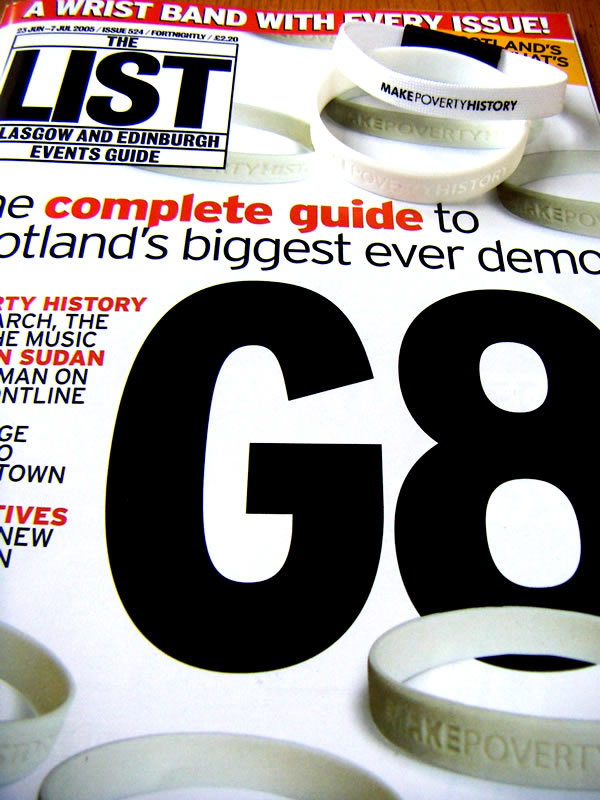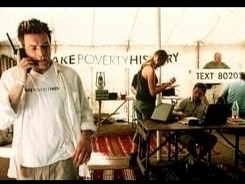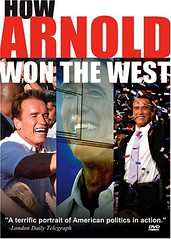More on Academic Celebrities
 At the Celebrity Culture conference, we very nearly had that panel on academic celebrity. On the Monday morning drive down to Ayr, Phil, David P. Marshall (Keynote) and I debated the potential merit of raising this subject in the programme, which is implict of many debates surrounding the public intellectual.
At the Celebrity Culture conference, we very nearly had that panel on academic celebrity. On the Monday morning drive down to Ayr, Phil, David P. Marshall (Keynote) and I debated the potential merit of raising this subject in the programme, which is implict of many debates surrounding the public intellectual.However, as the conference kicked-off, Phil and I became embroiled in the media frenzy, David lost his luggage, Diane couldn't get into the country, the fire-alarm went off and, in any case, we didnt really have enough time on the programme to put it together.
So, perhaps a follow-up meeting on this subject is in order? I mention this now after having seen Prospect Magazine's list of Global Public Intellectuals.
Noam Chomsky tops the bill followed by:
Position Name Total votes
2 Umberto Eco 2464
3 Richard Dawkins 2188
4 Václav Havel 1990
5 Christopher Hitchens 1844
6 Paul Krugman 1746
7 Jürgen Habermas 1639
8 Amartya Sen 1590
9 Jared Diamond 1499
10 Salman Rushdie 1468
11 Naomi Klein 1378
12 Shirin Ebadi 1309
13 Hernando De Soto 1202
14 Bjørn Lomborg 1141
15 Abdolkarim Soroush 1114
16 Thomas Friedman 1049
17 Pope Benedict XVI 1046
18 Eric Hobsbawm 1037
19 Paul Wolfowitz 1028
20 Camille Paglia 1013
21 Francis Fukuyama 883
22 Jean Baudrillard 858
23 Slavoj Zizek 840
24 Daniel Dennett 832
25 Freeman Dyson 823
26 Steven Pinker 812
27 Jeffrey Sachs 810
28 Samuel Huntington 805
29 Mario Vargas Llosa 771
30 Ali al-Sistani 768
31 EO Wilson 742
32 Richard Posner 740
33 Peter Singer 703
34 Bernard Lewis 660
35 Fareed Zakaria 634
36 Gary Becker 630
37 Michael Ignatieff 610
38 Chinua Achebe 585
39 Anthony Giddens 582
40 Lawrence Lessig 565
41 Richard Rorty 562
42 Jagdish Bhagwati 561
43 Fernando Cardoso 556
44= JM Coetzee 548
44= Niall Ferguson 548
46 Ayaan Hirsi Ali 546
47 Steven Weinberg 507
48 Julia Kristeva 487
49 Germaine Greer 471
50 Antonio Negri 452
51 Rem Koolhaas 429
52 Timothy Garton Ash 428
53 Martha Nussbaum 422
54 Orhan Pamuk 393
55 Clifford Geertz 388
56 Yusuf al-Qaradawi 382
57 Henry Louis Gates Jr. 379
58 Tariq Ramadan 372
59 Amos Oz 358
60 Larry Summers 351
61 Hans Küng 344
62 Robert Kagan 339
63 Paul Kennedy 334
64 Daniel Kahnemann 312
65 Sari Nusseibeh 297
66 Wole Soyinka 296
67 Kemal Dervis 295
68 Michael Walzer 279
69 Gao Xingjian 277
70 Howard Gardner 273
71 James Lovelock 268
72 Robert Hughes 259
73 Ali Mazrui 251
74 Craig Venter 244
75 Martin Rees 242
76 James Q Wilson 229
77 Robert Putnam 221
78 Peter Sloterdijk 217
79 Sergei Karaganov 194
80 Sunita Narain 186
81 Alain Finkielkraut 185
82 Fan Gang 180
83 Florence Wambugu 159
84 Gilles Kepel 156
85 Enrique Krauze 144
86 Ha Jin 129
87 Neil Gershenfeld 120
88 Paul Ekman 118
89 Jaron Lanier 117
90 Gordon Conway 90
91 Pavol Demes 88
92 Elaine Scarry 87
93 Robert Cooper 86
94 Harold Varmus 85
95 Pramoedya Ananta Toer 84
96 Zheng Bijian 76
97 Kenichi Ohmae 68
98= Wang Jisi 59
98= Kishore Mahbubani 59
100 Shintaro Ishihara 57








